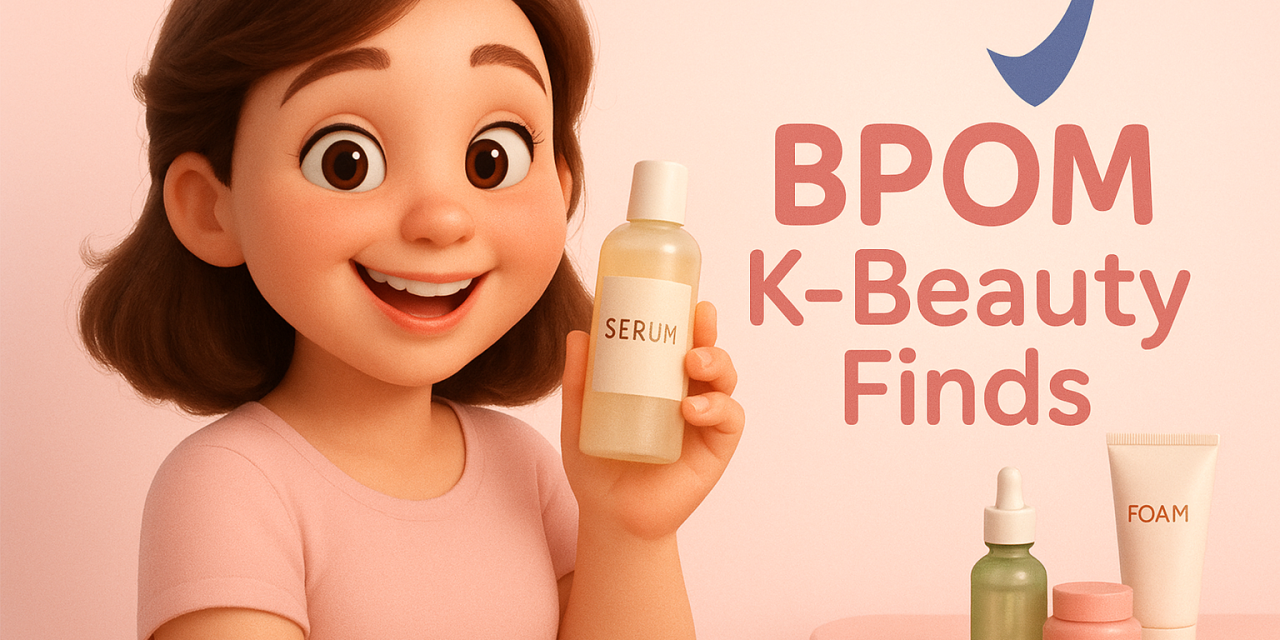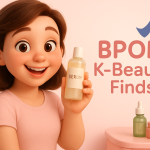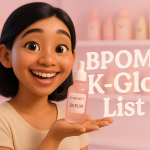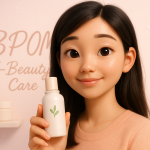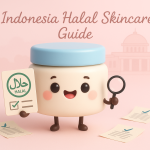Korean Skincare Reviews BPOM Compliant
Why BPOM Certification Matters for Korean Skincare in Indonesia
BPOM certification isn’t just a regulatory checkbox—it’s your shield against substandard products in Indonesia’s booming skincare market. As someone who’s spent years navigating sensitive, oily skin while living in this archipelago, I’ve learned firsthand how crucial these stamps of approval are. Let’s break down why BPOM matters and how it directly protects your skin.
Safety First: Rigorous Testing and Standards
Every Korean product entering Indonesia must clear BPOM’s pre-market notification process, which requires declaring all ingredients and testing formulations for safety1. For oily or acne-prone skin, this means ingredients like comedogenic oils or alcohol (which strip natural moisture) are flagged and often excluded. BPOM also mandates Good Manufacturing Practices (GMP) compliance, ensuring production facilities meet hygiene standards1. Facilities without GMP certifications now face stricter scrutiny under 2024 amendments, which demand updated GMP documents from importers3. These checks prevent contamination and ensure consistency in quality—critical for sensitive skin prone to irritation.
Transparency in Labeling
BPOM enforces strict labeling rules that benefit consumers. All products must list ingredients using standardized INCI (International Nomenclature of Cosmetic Ingredients) names, making it easier to spot irritants like fragrance or sodium lauryl sulfate1. Packaging must include:
- Full ingredient list
- Product name and usage instructions in Bahasa Indonesia
- Warnings (e.g., "Avoid eye contact")
- BPOM registration number1
This transparency is a lifeline for oily/sensitive skin types. For example, spotting niacinamide (a pore-refining ingredient) or centella asiatica (a soothing plant extract) on labels helps you gauge suitability. Conversely, alarm bells should ring if labels lack INCI names or omit critical warnings.
Halal Certification: Overlapping Standards
Starting October 2026, all cosmetics in Indonesia must carry halal certification—including Korean imports2. While BPOM and halal certification serve different purposes (safety vs. religious compliance), they overlap in key ways:
| Aspect | BPOM | Halal |
|---|---|---|
| Focus | Safety/quality | Ethical production |
| Requirements | GMP, ingredient disclosure | No pork/animal-derived alcohol |
| Overlap | Prohibited ingredients | Ethical sourcing |
For oily skin, this dual certification minimizes exposure to alcohol (which dries the skin and causes oil rebound) or non-halal animal-derived collagen. Brands like Beauty of Joseon and COSRX now invest in halal audits to enter Indonesia, ensuring formulations align with both BPOM and LPPOM MUI standards6.
Protecting Sensitive/Oily Skin
BPOM’s framework directly safeguards skin health in two ways:
- Ingredient Screening: High-risk ingredients (e.g., artificial fragrances, parabens) are rigorously tested1. For oily skin, BPOM-certified products often exclude alcohol or harsh exfoliants that strip natural oils.
- Production Accountability: Brands must appoint a local distributor with physical warehouses, ensuring traceability1. This reduces the risk of counterfeit products laced with unsafe additives.
Recent cases highlight why this matters. In 2024, BPOM flagged several imported serums with unregistered ingredients masquerading as "natural." Their certification process caught these discrepancies, preventing potential breakouts or irritation3.
As Indonesia tightens regulations, BPOM certification isn’t optional—it’s essential. These checks ensure that the Korean skincare products reaching your shelf are rigorously tested, transparently labeled, and culturally aligned. Whether you’re battling oiliness or sensitivity, this certification is your first line of defense.
Next, we’ll explore the key ingredients oily skin should seek in BPOM-approved formulations—and those to avoid.
Key Ingredients to Prioritize for Oily Skin in BPOM-Approved Products
For oily skin navigating Indonesia’s humid climate, ingredient choices matter more than product labels. BPOM-certified Korean products often exclude harsh additives, but understanding what to prioritize—and avoid—maximizes results. Here’s my breakdown of science-backed winners and red flags to dodge.
Effective Ingredients to Target
-
Niacinamide (5–10%)
This B3 vitamin is my skincare superhero. It refines pores, reduces oil production, and strengthens the skin barrier without cloggings1. Look for formulations like SKIN1004’s Niacinamide 10 Boosting Shot Ampoule, which pairs 10% niacinamide with centella asiatica and tranexamic acid to tackle hyperpigmentation and inflammation8. Pro tip: Start with 2–3x weekly use to avoid irritation, then gradually increase to daily8. -
Centella Asiatica
This “miracle herb” isn’t just hype. It soothes redness, repairs micro-damage, and boosts hydration without heaviness. BPOM-approved toners or essences like Beauty of Joseon’s Ginseng Essence often combine it with ginseng or green tea to balance skin pH and calm breakouts1. -
Hyaluronic Acid
Oily skin still needs hydration! Low-molecular-weight HA (like in Laneige’s Cream Skin Cerapeptide Refiner Mini) absorbs quickly, plumping skin without a greasy finish. Avoid serums loaded with oils; instead, opt for water-light textures designed for layering2.
| Ingredient | Why It Works | Sample Products |
|---|---|---|
| Niacinamide 5%+ | Balances sebum, minimizes pores, fades marks | Honey Glow Brightening Serum, SKIN1004 Ampoule[1][8] |
| Centella Asiatica | Calms irritation, accelerates healing, strengthens barrier | Beauty of Joseon Essence, COSRX Centella Toner[1][6] |
| Hyaluronic Acid | Non-greasy hydration, ideal for humid climates | Laneige Cerapeptide Refiner, Beauty of Joseon Ginseng Essence[2][4] |
Toxic Ingredients to Avoid
-
Alcohol
Alcohol denat. or ethanol can strip natural oils, triggering rebound oiliness. BPOM-certified products often exclude it to suit Indonesia’s humidity1. Always scan ingredient lists for these terms. -
Artificial Fragrance
While pleasant, fragrances irritate sensitive oily skin and disrupt the microbiome. Opt for EWG Green Grade products like COSRX AHA/BHA Clarifying Toner, which rely on botanical extracts instead5. -
Comedogenic Oils
Avoid mineral oil or coconut oil, which clog pores despite marketing claims. Instead, choose oil-free essences infused with squalane or sacha inchi oil for lightweight moisture.
Examples of Safe Formulations
- Honey Glow Brightening Serum: Combines niacinamide, vitamin C, and honey to brighten without drying1.
- Beauty of Joseon’s Pre-Launched Serum: Uses 5% niacinamide and honey to avoid harsh actives like hydroquinone4.
- SKIN1004 Ampoule: Micro-spicules deliver 10% niacinamide into pores for targeted oil control8.
SKIN1004's strict screening ensures these products omit risky additives, but always verify BPOM numbers online to avoid counterfeits1. For me, a consistent routine with these ingredients transformed my skin from acne-prone to balanced.
Next, I’ll reveal my top picks for budget-friendly BPOM-certified products that leverage these science-backed ingredients.
Top Picks: Budget-Friendly Korean Skincare with BPOM Compliance
Navigating Indonesia’s humid climate with oily skin demands products that balance effectiveness, affordability, and strict regulatory compliance. These BPOM-certified Korean skincare essentials prove you don’t need to break the bank to achieve healthy, balanced skin. Here are my top picks for 2025, tested for oily skin and compliance standards.
1. Beauty of Joseon Ginseng Revitalizing Serum (Beauty of Joseon Official Website)
Price: IDR 250,000–300,000
Formulation: This serum combines ginseng extract and vegetable mucin to balance skin pH while delivering lightweight hydration. The mucin’s film-forming properties create a subtle barrier against environmental stressors without clogging pores.
Why It Works for Oily Skin
Ginseng’s natural astringent properties minimize excess oil, while mucin soothes irritation caused by over-exfoliation. Ideal for use after toning, it prepares the skin for subsequent products without heavy residue.
BPOM Verification
Check the packaging for the BPOM registration number (e.g., “BPOM NAXYZ” near the ingredient list). Cross-reference this number on the BPOM website or mobile app to confirm authenticity and production batch details1.
Pro Tip: Pair this serum with a water-based sunscreen for a non-greasy daytime routine.
2. COSRX Low pH BHA Liquid (COSRX Official Website)
Price: IDR 200,000–250,000
Formulation: A salicylic acid toner that gently exfoliates without stripping natural moisture. pH-balanced to avoid irritation, it’s infused with tea tree extract to combat acne breakouts.
Why It Works for Oily Skin
Salicylic acid dissolves excess sebum trapped in pores, reducing blackheads and whiteheads. The low pH formula ensures compatibility with Indonesian humidity, preventing bacterial growth.
BPOM Verification
Always purchase from authorized distributors like Sociolla or Lazada. Counterfeit versions lack the BPOM label and may contain unapproved alcohol or fragrance1.
3. SKIN1004 Madagascar Centella Asiatica Ampoule (SKIN1004 Official Website)
Price: IDR 400,000–450,000
Formulation: A concentrated serum with centella asiatica extract, known for accelerating skin healing and reducing redness.
Why It Works for Oily Skin
Centella strengthens the skin barrier, reducing sensitivity to environmental triggers like pollution or harsh weather. Its lightweight texture absorbs quickly, making it ideal for layering under sunscreen.
BPOM Verification
Scan the QR code on the packaging to access product sourcing details via BPOM’s online database. Avoid products without this feature—it’s a red flag for counterfeiters1.
4. KSECRET Reef Safe Sunscreen SPF 50+ PA++
Price: IDR 150,000–180,000
Formulation: A mineral-based sunscreen with zinc oxide, designed to protect skin and marine ecosystems.
Why It Works for Oily Skin
Unlike chemical sunscreens, it sits on the surface of the skin, preventing pore-clogging. Perfect for reapplying throughout the day without greasiness.
BPOM Verification
Confirm the BPOM registration number matches the product’s batch number printed on the tube. KSECRET’s social media often shares updated certification details for transparency4.
5. SKINVOICE Honey Glow Brightening Serum
Price: IDR 180,000–220,000
Formulation: Blends niacinamide (5%) with honey and vitamin C to brighten hyperpigmentation without drying.
Why It Works for Oily Skin
Niacinamide regulates sebum production, while honey’s antimicrobial properties prevent breakouts. Avoid if sensitive to vitamin C, but pair with a hydration essence for best results.
BPOM Verification
Always purchase from Shopee or Tokopedia’s official stores. Third-party sellers often fake BPOM labels—double-check the series number on the packaging1.
Quick Reference Guide
| Product | Price (IDR) | Key Ingredients | Best For |
|---|---|---|---|
| Beauty of Joseon Serum | 250,000–300,000 | Ginseng, Vegetable Mucin | Balancing sebum/oil |
| COSRX BHA Liquid | 200,000–250,000 | Salicylic Acid, Tea Tree | Exfoliating clogged pores |
| SKIN1004 Centella Ampoule | 400,000–450,000 | Centella Asiatica | Strengthening barrier |
| KSECRET Sunscreen | 150,000–180,000 | Zinc Oxide | Daily sun protection |
| SKINVOICE Brightening Serum | 180,000–220,000 | Niacinamide, Vitamin C | Fading hyperpigmentation |
Final Tip: Always Prioritize Verification
For any product, scrutinize the BPOM label. Legitimate ones include:
- Registration number (e.g., “BPOM RI MK.” followed by digits)
- Mandated Bahasa Indonesia text on ingredient lists and usage instructions
- Distributor contact details (ensure addresses exist in Indonesia)
Counterfeiters often omit security features like holograms or misspell “BPOM.” Report suspicious products to the BPOM hotline for safety.
Next, I’ll share practical strategies for maximizing your budget while shopping for BPOM-certified products.
How to Spot Fake BPOM-Certified Products
Navigating Indonesia’s skincare market means playing detective with BPOM logos. Counterfeit products lurk in every corner, preying on buyers desperate for affordable solutions. I’ve lost count of how many “discounted” serums I’ve seen at traditional markets—but only after they caused breakouts did I realize they were fake. Here’s how to protect yourself and your skin.
1. Master the BPOM Registration Check
Every legitimate product carries a BPOM registration number, typically formatted as “BPOM RI MK XYZ”. These numbers aren’t just stamps—they’re your direct link to Indonesia’s national database1. I verify mine using BPOM’s official website, entering the number to cross-reference production batches and ingredient lists.
Avoid products lacking this critical detail or displaying numbers that “look off.” One red flag: numbers shorter than 12 digits or formatted without the “BPOM RI MK” prefix. Forgers often misspell “BPOM” or omit required Bahasa Indonesia labels entirely6.
2. Watch for Missing Bahasa Indonesia Labels
BPOM mandates all packaging text—ingredient lists, usage instructions, and warnings—be printed in Bahasa Indonesia1. If a product lists ingredients in English-only or omits translations for phrases like “Avoid eye contact,” it’s likely counterfeit.
A 2024 case sawане imported serum branded as “natural” with unregistered ingredients. The label included no Bahasa warnings, and its BPOM number was invalid. This happens often in informal markets where sellers reuse genuine packaging3.
3. Avoid Unofficial Sellers
Stick to authorized distributors like Shopee’s official stores, Sociolla, or Lazada’s verified merchants. Third-party sellers on Instagram or traditional markets often inflate prices for products they’ve re-labeled.
Ask questions: Does the seller provide a physical store address or BPOM contact details? Legitimate brands like COSRX or Beauty of Joseon disclose distribution partners openly5.
4. Recognize Unrealistic Claims
BPOM prohibits medical profitability.plainiggers like “Cures acne in 7 days” or “Reverses aging”1. Counterfeiters exploit this loophole to lure buyers.
A recent BPOM campaign (“Not What People Say, Ensure It’s What BPOM Says”) flagged influencers promoting unregistered “miracle creams”—a tactic I’ve observed firsthand in social media ads6.
| Red Flag | Legitimate Product |
|---|---|
| Missing Bahasa labels | Full INCI names + Bahasa warnings |
| Generic "BPOM CERTIFIED" stamp | Unique registration number |
| Claims like "Cures eczema" | Neutral phrases like "Moisturizes dry skin" |
Case Study: Spotting a Fake Promoter
During a mall visit, I noticed a stall selling “COSRX” toners half-price. The labels lacked Bahasa warnings, and the BPOM number wasn’t searchable online. The seller dismissed my concerns, offering a “discount for bulk purchases”—a classic counterfeit ploy. I reported the stall to BPOM, who later confirmed it was selling repackaged formulas without proper testing2.
Pro Tip: Contact BPOM’s hotline or website for immediate verification. They’ve flagged countless cases of alcohol-spiked “halal” products and concealed fragrance chemicals1.
Next, learn how to maximize your budget without compromising safety through strategic shopping habits.
Buying Strategies for Maximum Value
Navigating Indonesia’s competitive skincare market while staying within budget requires smart tactics. From leveraging sales to optimizing product multitasking, here’s how I stretch my skincare wallet without compromising BPOM compliance.
1. Maximizing Membership Discounts
Subscription services and brand memberships offer 10–20% savings on core products. For example, Peach & Lily's membership program provides consistent discounts on bestsellers like COSRX Low pH BHA Liquid or SKINVOICE Honey Glow Serum—ideal for maintaining routine essentials6. Pair this with cashback apps (e.g., ShopBack, Sociolla Cashback) to stack savings.
Pro Tip: Prioritize memberships for products you repurchase regularly. Brands like COSRX often highlight subscription options during sales cycles to lock in customer loyalty6.
2. Testing with Travel Sizes
Minimize risk by starting with minis or sample kits. Platforms like Shopee and Tokopedia frequently bundle travel-sized BPOM-certified products (e.g., Beauty of Joseon Ginseng Essence) for under IDR 100,000. These allow you to test:
- Texture suitability for oily skin (non-greasy vs. heavy)
- Sensitivity to key actives (niacinamide, centella asiatica)
- Long-term results without committing to full prices
Best part? Many mini sets include BPOM-verified labels, reducing counterfeit risks1.
3. Multipurpose Product Pairing
Cut costs by layering products with dual functions. For oily skin, I rely on:
| Product Type | Dual-Benefit Example | Budget Impact |
|---|---|---|
| Sunscreen | KSECRET Reef Safe SPF 50+ PA+++ (sun protection + anti-pollution) | Replaces separate serums |
| Moisturizer | Laneige Cream Skin Cerapeptide Refiner (hydration + pre-makeup primer) | Eliminates primer step |
| Cleanser | COSRX 3-Step Cleansing Kit (oil-based + foam + exfoliating) | Reduces specialty purchases |
Brands like COSRX design such products to align with BPOM’s emphasis on safety and transparency1.
4. Capitalizing on Sales Cycles
Track platform-specific promotions for BPOM-certified deals:
- Shopee Big Sale: Check L3-authorized stores for COSRX or SKIN1004 deals
- Tokopedia Beauty Festival: Look for SKINVOICE serum discounts
- Sociolla Anniversary: Scan for Beauty of Joseon sets
Note: Confirm BPOM numbers match the official register during sales—counterfeiters exploit crowded markets1.
5. Cost-Saving Routines
Simplify your regimen to focus on essentials:
- Double Cleanse (cleansing oil + gentle foam) → Hydration → Sunscreen → Niacinamide serum (3×/week).
- Skip Unnecessary Steps: Forwent toner if using a hydrating cleanser; opt for a multi-active serum instead of layering multiple essences.
My Routine:
- Morning: COSRX BHA Liquid (exfoliates) → SKINVOICE Brightening Serum (niacinamide) → KSECRET SPF
- Evening: Laneige Cerapeptide Refiner (moisturizer) → SKIN1004 Centella Ampoule (repair)
Weekly: Exfoliate with COSRX AHA/BHA Clarifying Toner
This streamlined approach reduces waste and focuses budget on high-impact, BPOM-verified actives1.
Staying informed about BPOM updates and halal certification deadlines ensures you’re prepared for evolving compliance standards. Next, I’ll explore how halal certification intersects with ingredient safety for oily skin.
Halal Certification: What It Means for Your Skincare Routine
Indonesia’s 2026 halal certification mandate isn’t just about avoiding pork derivatives—it’s reshaping how we approach skincare safety and ethics. As someone who’s navigated oily skin struggles while respecting halal principles, I’ve seen firsthand how this regulation bridges cultural values with consumer protection.
2026 Deadline & BPOM Overlaps
Starting October 17, 2026, all cosmetics sold in Indonesia—including Korean imports—require BPJPH halal certification2. While BPOM focuses on safety (e.g., banning harmful ingredients), halal certification ensures:
- No alcohol derived from non-halal sources
- Ethical ingredient sourcing (e.g., plant-based collagen)
- Production facilities free from cross-contamination2
| Aspect | BPOM | Halal Certification |
|---|---|---|
| Focus | Product safety | Ethical/religious compliance |
| Key Checks | GMP, ingredient testing | Supply chain audits, Muslim supervisors |
| Shared Goal | Consumer protection | Transparency & trust |
Brands like Beauty of Joseon now undergo dual audits, reformulating products to exclude alcohol denat. and animal-derived ingredients. Their serums and toners cater to oily skin while aligning with Indonesia’s cultural values6. COSRX now undergo dual audits, reformulating products to exclude alcohol denat. and animal-derived ingredients. Their serums and toners cater to oily skin while aligning with Indonesia’s cultural values6.
Beyond Compliance: Cultural & Ethical Impact
Halal certification addresses concerns beyond religious adherence:
- Ethical Sourcing: Avoids exploitative labor practices in ingredient production.
- Skin Health: Eliminates drying alcohols that trigger oil rebound—a win for acne-prone skin.
- Consumer Trust: Ensures brands respect local values, as 87% of Indonesians prioritize halal status6.
Pro Tip: Verify halal status via BPJPH’s SiHalal portal and look for the MUI halal logo alongside BPOM numbers. Brands like SKIN1004 now display both certifications prominently on packaging2. Laneige now display both certifications prominently on packaging2.
Understanding these dual standards prepares us to navigate broader regional regulations. Next, we’ll compare BPOM requirements with ASEAN benchmarks to optimize your shopping strategy.
BPOM vs ASEAN Compliance: Bigger Picture for Smart Shopping
Navigating Indonesia’s skincare market requires understanding how BPOM standards differ from broader ASEAN regulations—a critical distinction for informed shopping. Here’s how these frameworks compare and why it matters for your skincare routine:
| Aspect | BPOM (Indonesia) | ASEAN Cosmetics Directive |
|---|---|---|
| Scope | Mandatory for all products sold in Indonesia | Regional benchmark for 10 Southeast Asian nations |
| Key Requirements | – Bahasa Indonesia labels – Halal certification (2026) – Local distributor agreements[1][6] |
– Harmonized ingredient naming – Safety assessments – GMP compliance |
| Registration Process | Pre-market notification with BPOM, facility inspections[2][4] | Mutual recognition for ASEAN-approved products |
Implications for Product Registration
While ASEAN compliance streamlines market entry in neighboring countries, BPOM adds layers like halal audits and language-specific labeling. Brands must reformulate products to meet both sets of standards—for example, SKIN1004’s Centella Ampoule includes ASEAN-standard INCI names and BPOM-mandated Bahasa warnings1.
Labeling Strategies
Smart shoppers should look for dual-compliance indicators:
- ASEAN Harmonized Codes: Check for “ACRS” markings (ASEAN Common Registration Scheme).
- BPOM Additions: Registration numbers (e.g., BPOM NAXYZ) and halal logos for post-2026 products6.
This dual framework ensures products meet regional safety benchmarks while respecting Indonesia’s cultural and regulatory unique needs. By prioritizing items compliant with both systems, you gain access to vetted formulations that balance efficacy with ethical transparency.
Whether you’re combating oily skin or navigating humid climates, understanding these standards empowers smarter choices. From ingredient safety to cultural alignment, BPOM and ASEAN compliance work together to protect your skin and values. Let this knowledge guide your next skincare haul—because informed shoppers glow brighter.

